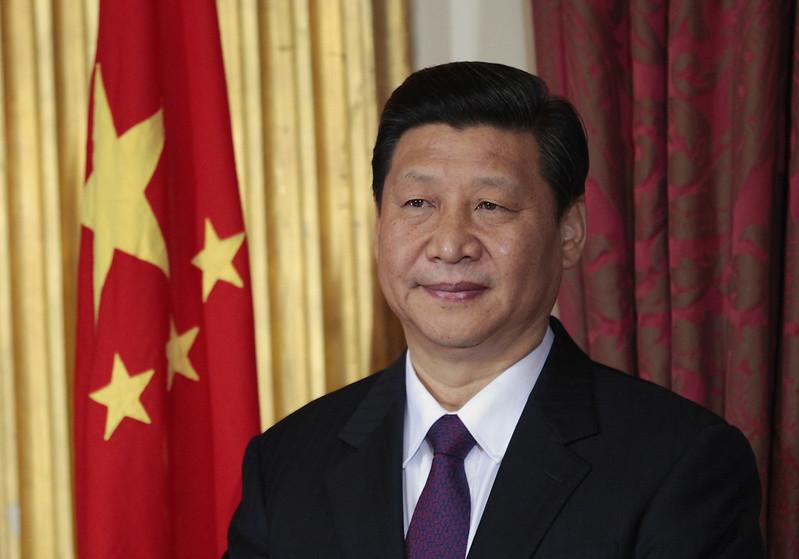Xi Jinping’s Third Term: New Term, Same Policies - The Future of the EU-China Relationship under Xi Jinping

The 20th National Congress of the Chinese Communist Party (CCP) ended on 22 October in a dramatic show of power from Xi Jinping. The President of the People's Republic of China received a third term, making him the most powerful leader of the CCP since Mao. He demonstrated his determination to eliminate political opposition, while his policies and ideology were enshrined in the country’s constitution. The policies put forward during the Congress point to a doubling down of the CCP on its internal and external political trajectory. As tensions and rivalries with other countries and economic hardships in China itself are reaching new heights, how will this new political landscape affect China and its relationship with the European Union (EU) and the West in general?
Based on the National Congress proceedings, Xi Jinping emerges from the 20th National Congress stronger and more ruthless than ever. He has effectively surrounded himself with loyalists and side-lined potential rivals. This new class of ‘yes-men’ represent no threat to his power and will unflinchingly support his policies. Li Qiang, a close ally who supervised Shanghai's grinding two-month COVID-19 lockdown this year, is positioned to become China’s next Premier. His strict enforcement of the Zero-Covid policy made him very unpopular but proved his loyalty to Xi Jinping. His willingness to follow orders despite risks to his political future was rewarded and he is expected to continue in his new mandate. This trustworthiness explains his nomination, which broke with tradition and has surprised many as he would be the first Premier not to be advanced from Vice-premier since 1976.
The unexpected removal of Hu Jintao from the hall, intentionally orchestrated in front of the international media, is another powerful sign of Xi’s power grab and domination of the party. Hu’s demotion vis-à-vis Xi has consequently resulted in his faction, the Communist Youth League (CYL),being sidelined. Notably, former vice-premier Hu Chunhua, who was considered a credible candidate to become the next Premier, will not even be part of the Politburo. Instead, all members of the top governing body are Xi’s protégés and allies. This elevation of Xi’s allies comes at the expense of reformists and officials with more experience in economics and the international community who will not occupy any positions of influence. Furthermore, for the first time in 25 years, the Politburo will not have a woman member.
The current government makeup and its compliancy, will allow Xi to implement his policies without any modicum of criticism or internal rivalry. Xi’s personal and the regime’s credibility are now identical and no critical voice at the top of the government will be tolerated. When these factors are added up, China’s current positions and policies are unlikely to change in the near future. Surrounded by allies, Xi will face very few obstacles to transform China into a more assertive and isolated state
The Congress also served for Xi to cement his political ideology and further incorporate it into the country’s constitution. The objectives of attaining a larger degree of party control over the economy and interventionism, modernisation and more economic equality were highlighted during the National Congress, with the proclaimed aim of achieving the “great rejuvenation of the Chinese nation on all fronts”.
In the economic domain, this preference for ideology and interventionism over trade, liberalism and a market economy will likely continue to negatively impact the economy and global supply chains. While it reinforces the CCP’s role, it also creates more inertia in its politics and less incentive to take economic interests into account. Against this backdrop, we are likely to see more of the same oppressive policies and crackdowns that have become common practice. Trade and foreign investments will be impacted as the market becomes more unpredictable and less profitable. The strict Zero-Covid policy is expected to remain in place in the coming months as Xi and the CCP cannot risk presenting this policy position as wrong. The negative economic and social consequences of this policy have resulted in significant dissatisfaction amongst the population. Anger is mounting with every mishandling of the situation such as the death of a 3-year-old boy from the consequences of the lockdown in early November. However, this policy also enables an increased control over the population and economic actors. In this respect, Xi seems to consider that the pros outweigh the cons. Businesses present or dependent on the country will face financial and logistical implications and likely see their supply chains disturbed and revenues diminished.
Meanwhile, at the diplomatic level, the “resolution” of the Taiwan question and “reunification” was recognized as an important objective of China’s new era. Beijing’s diplomatic assertiveness and aggressive rhetoric in the past years is part of Xi’s vision for his country’s ‘rejuvenation’. This revenge over the past by attaining the level of a superpower as one unified country is central to Xi’s and China’s ambition. Therefore, Beijing is unlikely to adopt a more conciliatory approach vis-à-vis Taiwan that it views as a breakaway province. Considering itself a rising superpower on course to replace the US, China will aim to protect its interests and expand its influence, in particular regionally across the South China Sea, in Southeast Asia and Central Asia.
Xi’s updated model of China, will force the EU and its member states to face a multitude of difficult, and uncomfortable choices in the coming months. Of these decisions, trade will be most sensitive where it would be advisable for the EU to diversify their imports away from China, and decouple in critical domains. We have seen efforts in this direction in recent months especially from the US and China in the technological sector, and it will be critical to evaluate the necessary steps to protect every sector of the economy.
Diversification of economic supply chains reduces dependencies and sensitivity to specific crises but would allow actors to remain in, or work with China. The reliance on China as a manufacturing country affects the capacity of European countries to have reliable access to critical supplies such as raw materials, batteries, active pharmaceutical ingredients, hydrogen, and cutting-edge technologies. The Covid pandemic and China’s use of economic dependencies to bully Lithuania were important wake-up calls to the danger of these dependencies for the EU. However, there seems to be limited political appetite to implement these measures in a unified manner across the Union. For example, while an EU mechanism for screening foreign investments entered into force in 2020, nine member states have yet to set up national-level mechanism. The EU needs to send a strong and healthy signal to China that it is determined to protect its own economic interests.
Through this diversification, industries could turn to other countries in times of crisis or conflict. Beijing would then have less influence in certain industries and countries, and the EU would gain negotiating power. This would protect EU interests while maintaining a level of cooperation and diplomatic dialogue that would be beneficial when facing certain challenges such as climate change. On the other hand, decoupling in strategic sectors offers a longer-term protection against Chinese crackdowns and eliminates dependencies on a rival and increasingly aggressive state. It would be absolutely necessary in critical sectors, such as electronics and medical products manufacturing, but would have more negative short-term impacts and could prove difficult to achieve in an already difficult economic situation. However, the impact of the EU’s dependency on Russian gas has shown how damaging relying on confrontational rival states can be. Future outsourcing and relocation should also ensure diversification in order to prevent relying too heavily on one country that could become a rival regime.
From Beijing, Europe is seen as an old and a decadent continent focused only on maintaining its quality of life. The war in Ukraine has slightly shaken that belief and shown that Europe can be assertive as well, despite the slowness of its bureaucracy. It is clear that our partners and like-minded countries hope to see the same unity when dealing with China for example on the question of Taiwan. In the backdrop of Xi’s clear ambition to instore China as a hegemon, Europe will no longer be able to overlook China’s disruptive behaviour. It is incumbent to us to realise that this issue matters when the future of our societies and economies are in the balance.

Project Manager GLOBSEC Brussels